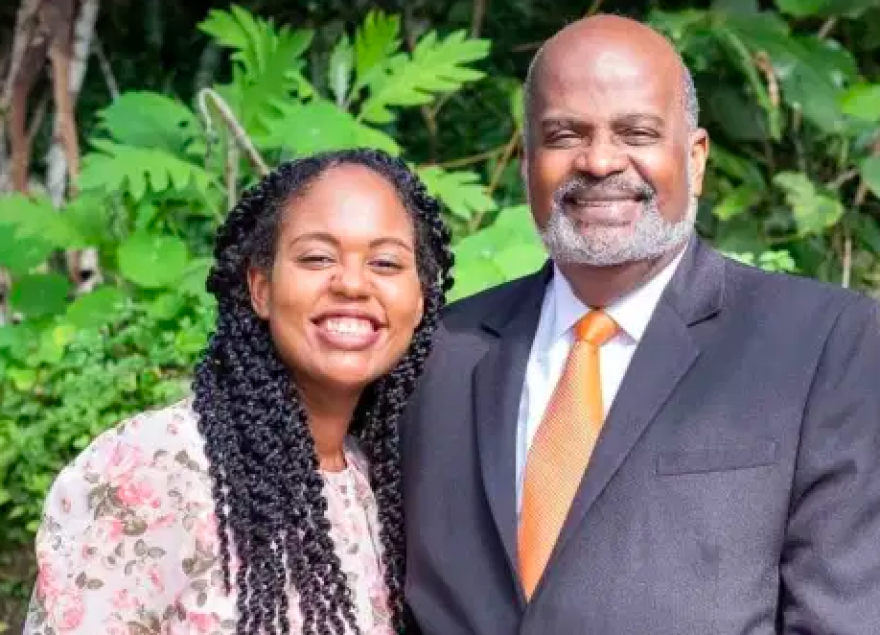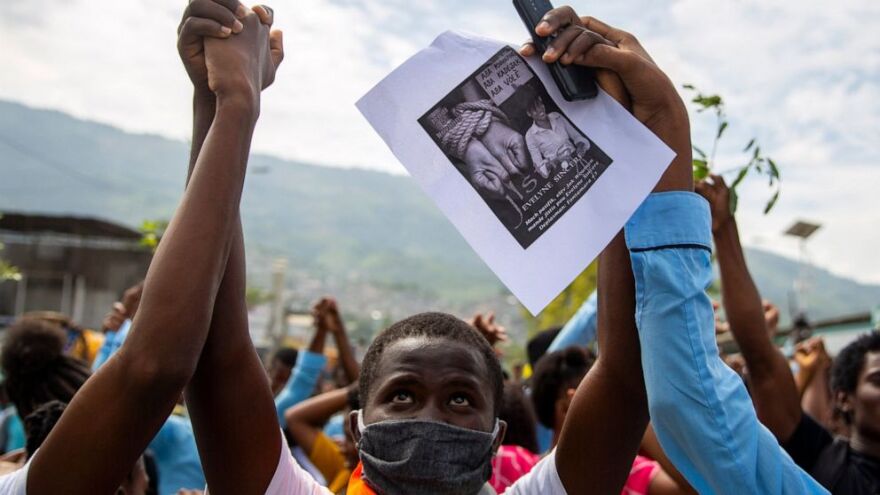On Christmas Eve, Seventh-Day Adventist Church Pastor Elie Henry of Miami and his adult daughter Irma were kidnapped in Port-au-Prince.
They were released Monday night unharmed, according to Adventist spokespersons. Haitian media said their abductors had demanded a $5 million ransom, but neither the Henry family nor the Adventists are so far disclosing whether a ransom was paid.
WLRN is committed to providing South Florida with trusted news and information. In these uncertain times, our mission is more vital than ever. Your support makes it possible. Please donate today. Thank you.
That question, however, is an important one for the Haitian diaspora residing in the U.S. and other countries. Pastor Henry is a Haitian-born U.S. permanent resident who lives in Miami, where he heads the Adventists’ Inter-American division.
Because he lives in the U.S. — and is therefore presumed capable of coming up with more ransom — he may have been a bigger target of the kidnapping gangs terrorizing Haiti, where human rights groups say at least four abductions are currently reported each day.

Pastor Leonard Johnson, the Inter-American executive secretary for the Adventists — a Christian denomination with a large following in Haiti — said the church has no intention of backing away from the struggling country. But he acknowledged organizations like his church will have to consider Haiti's ransom abduction plague more seriously now.
“We have a longstanding commitment with the people of Haiti to deliver the Gospel of Christ to people there, so we cannot be deterred by something like this," Johnson said. "But the church takes seriously the matter of safety, and certainly this event is a learning lesson for us.”
Kidnappings like Henry’s are now lessons for the Haitian diaspora in general. Many are re-assessing whether it’s safe anymore for them to make visits to family or do business in Haiti.
“Every day you have another story: one more person has been kidnapped, more and more members of the diaspora who are kidnapped," said Farah Larrieux, a Haitian expat communications consultant in Miramar.
"And it’s like you’re asking yourself, 'Are you next?'”
Larrieux adds she knows several Haitian-Americans in South Florida who canceled holiday trips to Haiti this year because of those fears.
Haitians were especially outraged last month after a Port-au-Prince high school student, Evelyne Sincère, was kidnapped and killed when her ransom was not paid on time — and her corpse was left in a trash heap by the side of a road. Since then, Haitians have taken to the streets to protest the kidnappings and demand action from President Jovenel Moïse's authoritarian government, which has appeared powerless to stop the crisis.
The situation is made worse by growing evidence Haitian police are allegedly involved in many abductions — which they deny.






